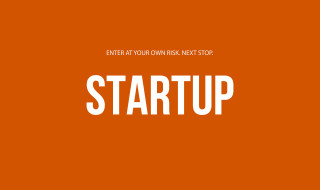
As a business leader, the last three words you would expect to say to anybody are ‘I don’t know.’ The risk of appearing vulnerable is a common fear, as you don’t want the people you work with, be they staff, customers, or clients, to know that you aren’t always in full control. After all, as the person in charge, you need to inspire confidence in others. However, despite your better instincts, it is okay to show vulnerability. It is okay to show weakness. It is okay to sometimes say ‘I don’t know.’ Here are the reasons why:
You don’t know everything
You don’t – it’s as simple as that. You aren’t a walking encyclopedia, with knowledge about every facet of your company. You probably don’t have qualifications in every skill set that makes your company run smoothly. You will never have all the answers to everything, and nobody expects you too. Saying ‘I don’t know’ is the logical solution. That doesn’t mean you can’t commit to a little research. It doesn’t mean you can’t understand certain facets of your business more. But you will only overwhelm yourself if you try and learn everything, and the quality of the work you produce will suffer as a result.
You have your own job to do
You are in a leadership position, with your own duties and responsibilities for your working day. To have your finger in every other aspect of your business will only undermine the people you have working for you, and you will have less time to get on with the tasks your position dictates. So, do what you do well and don’t sweat the details in other areas. You don’t need to know what a Piezo buzzer is, for example, if you don’t have skills in manufacturing, and you don’t need to know everything about SEO if you already have a marketing team. Get on with your own job, fulfilling the job description that befits your role, such as inspiring others to do their job well, instead of involving yourself in places where your time will be wasted.
Other people are better than you
Following on from the above, you need to remember that you are employing people for a purpose. They are there to make your life easier, to achieve your company’s vision; and to cover the gaps in your own skill base. Your employees have a job to do, with training and qualifications that may be well out of your remit. And that’s okay. You don’t need to be better than them as a leader. You have nothing to prove to them, other than your leadership credentials. You will only come unstuck if you try to be a ‘master of everything,’ and your employees will see right through your ill-fated attempts at ‘expertise.’ Let them get on with their jobs, admire the skills they possess, and rather than trying to get hands-on in different aspects of your company, do what you’re there for, and give your staff the tools to do their job better.
Finally
Saying ‘I don’t know’ requires you to show your human side. By being vulnerable and admitting to not knowing all the answers will inspire confidence – it’s better to be honest than to lie or to give an ill-informed answer, right? Educate yourself on the areas that matter, especially if you don’t know the things you really should within your business, but rely on the strengths of others in those areas where you don’t need to have full control. You will gain more respect if you do.






